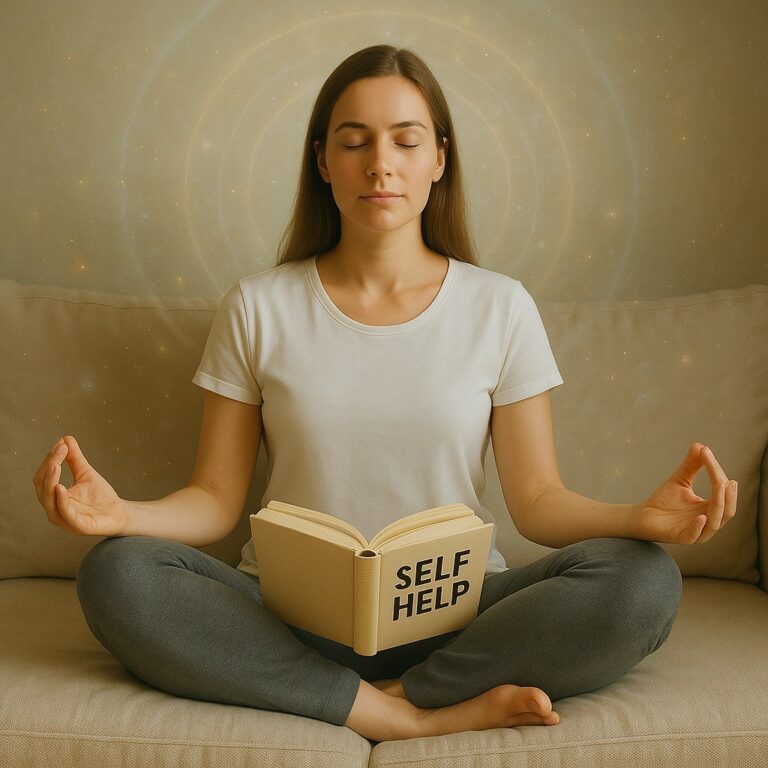
The Self-Help genre is a catalyst for change—empowering readers to take control of their lives, overcome obstacles, and become the best version of themselves. Whether tackling mindset, relationships, habits, or healing, these books offer insight and guidance rooted in experience, psychology, and practical advice.
At its core, the Self-Help genre is about self-empowerment. It invites readers to reflect, reset, and take intentional steps toward improvement—whether emotionally, spiritually, physically, or professionally. With the right words at the right moment, a single book can ignite massive transformation.
This genre often explores:
Personal Growth & Mindset: Teaching readers how to cultivate confidence, clarity, and emotional intelligence.
Mental Health & Emotional Resilience: Offering tools for managing anxiety, grief, burnout, and trauma.
Habits & Productivity: Helping readers break bad habits, build good ones, and optimize their daily routines.
Relationships & Communication: Guiding readers toward healthier interpersonal dynamics, boundaries, and self-worth.
Purpose & Motivation: Encouraging readers to find meaning, set goals, and reconnect with their ‘why.’
From daily affirmations to life-altering revelations, the Self-Help genre is a trusted companion on the journey to a more fulfilling life.
Empower and Inspire: Writing Your Self-Help Book
Writing in the Self-Help genre is all about connecting with your reader’s pain points—and offering hope, tools, and a clear path forward. If you’re ready to share your story or framework for growth, here’s how to start:
Identify the Problem You’re Solving
Start with a clear transformation: What struggle are readers facing, and how will your book help them move through it? Be specific—whether it’s building confidence, navigating breakups, or creating balance in life.
Share Personal Stories or Case Studies
Make it real. Use your own journey, or the stories of others (with permission), to show that growth is possible. Vulnerability creates trust—and trust creates transformation.
Create a Step-by-Step Framework
Break down your advice into practical, repeatable steps. Whether it’s a 5-part system or daily rituals, make sure your process is easy to follow and action-oriented.
Speak with Empathy, Not Authority
The best self-help authors are guides, not gurus. Use a tone that’s conversational, encouraging, and human. Make readers feel seen, not judged.
Include Exercises and Reflection Prompts
Help readers take action with journaling prompts, checklists, affirmations, or challenges. Growth happens when they apply the material—not just read it.
Address Limiting Beliefs Head-On
Anticipate readers’ doubts or fears. Offer validation, reassurance, and stories that demonstrate how others overcame similar blocks.
Leave Readers with Lasting Motivation
End your book with a powerful takeaway or reminder. Whether it’s a manifesto, a final challenge, or a gentle nudge toward action, your conclusion should feel like a new beginning.
These powerful books have inspired millions of readers to change their habits, reframe their mindset, and reclaim their lives:
The Power of Now by Eckhart Tolle
Did you know? This spiritual self-help classic teaches readers how to live fully in the present moment—and how mindfulness can alleviate suffering.
Atomic Habits by James Clear
Did you know? James Clear breaks down how small daily improvements lead to massive long-term change, backed by behavioral science.
The Subtle Art of Not Giving a F*ck by Mark Manson
Did you know? This blunt, no-nonsense guide flips the script on toxic positivity and teaches the power of accepting life’s limitations.
You Are a Badass by Jen Sincero
Did you know? Jen Sincero blends humor, self-love, and spiritual swagger to help readers ditch self-doubt and embrace their inner power.
Man’s Search for Meaning by Viktor E. Frankl
Did you know? Written by a Holocaust survivor and psychiatrist, this profound book explores finding purpose even in the most devastating circumstances.
Combines inner growth with spiritual exploration, often drawing from mindfulness, meditation, or Eastern philosophy.
Example: The Untethered Soul by Michael A. Singer
Focuses on time management, habit formation, and efficiency, offering systems for personal and professional success.
Example: Deep Work by Cal Newport
Explores topics like anxiety, trauma, and self-esteem, offering readers tools for emotional resilience.
Example: The Body Keeps the Score by Bessel van der Kolk
Packed with encouragement, personal stories, and rally cries to take action and believe in oneself.
Example: Can’t Hurt Me by David Goggins
Focuses on improving relationships, setting boundaries, and building inner confidence.
Example: Attached by Amir Levine & Rachel Heller
Ready to share your story?
Tell us what you need—we’ll help bring your book to life.
